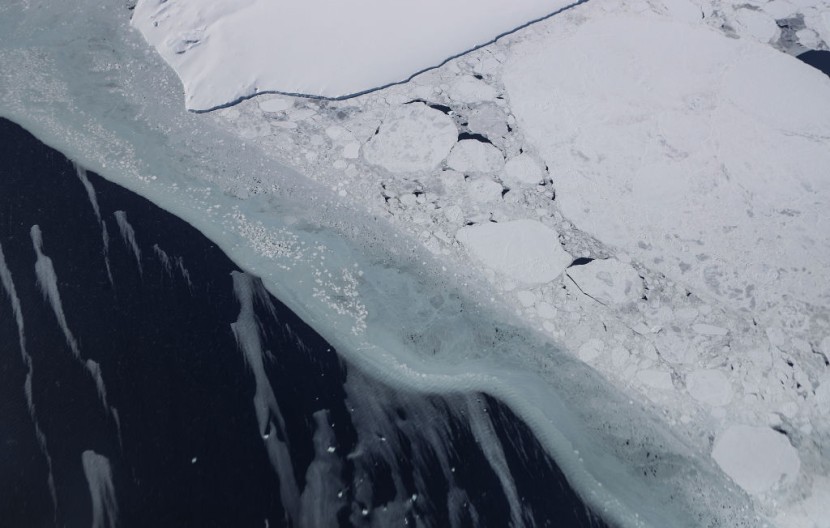New research suggests that the rapid ice melt in West Antarctica has now become "unavoidable" as global warming continues to accelerate.
The situation has prompted concern and the need for immediate planning due to potentially devastating implications for sea level rise worldwide. Even if the world was to suddenly meet its ambitious targets to limit global heating, West Antarctica would still experience substantial ocean warming and ice shelf melting.
Unavoidable Rapid Ice Melt in West Antarctica

Scientists know ice shelves as tongues of ice that jut out into the ocean at the end of glaciers and act like buttresses by helping hold ice back on the land. This slows down its flow into the sea and provides an important defense against sea level rise. But as ice shelves melt, they thin and lose their buttressing ability.
While scientists have seen growing evidence that ice loss in West Antarctica may be irreversible, there is still uncertainty about how much can be prevented through climate policies, as per CNN.
The researchers of the study that was published on Monday in the journal Nature Climate Change looked at "basal melting." This is when warm ocean currents melt the ice from beneath the glaciers. The team analyzed the rate of ocean warming and ice shelf melting under different climate change scenarios.
These ranged from the ambitious, where the world manages to limit global warming to 1.5 degrees Celsius above pre-industrial levels, to the worst-case scenario, where humans burn large amounts of planet-heating fossil fuels.
Results showed that if the world successfully limits temperature rise to 1.5 degrees Celsius, climate change could still cause the ocean to warm at three times the historical rate. They also found that even significantly cutting planet-heating pollution right now will have "limited power" in preventing warmer oceans from triggering the collapse of the West Antarctic ice sheet.
Potentially Disastrous Sea Level Rise
Scientists are already warning that the implications of the situation for sea level rise are "dire," and that some coastal cities may have to be abandoned completely. The complete melting of West Antarctica's ice sheet would push up the oceans by five meters, according to The Guardian.
The complete loss of the floating ice shelves would mean that the glacial ice sheets on land are freed to slide more rapidly into the ocean. The many millions of people who are living in coastal cities will become vulnerable to sea level rise, from New York to Mumbai to Shanghai. Additionally, more than a third of the global population lives within 62 miles of the coast.
The lead author of the study, Dr. Kaitlin Neughten, has called on policymakers to start planning for the predicted changes. She noted that having 50 years of lead time will make all the difference if they need to abandon or substantially re-engineer a coastal region.
She added that the threat of rising sea levels also has the potential to trigger a refugee crisis, particularly in developing nations where the governments do not have sufficient available resources to build complex engineering projects, said Yahoo News.
Related Article : Apollo 17 Rock Sample's Crystallization Offers More Precise Age of Moon
© 2026 HNGN, All rights reserved. Do not reproduce without permission.








